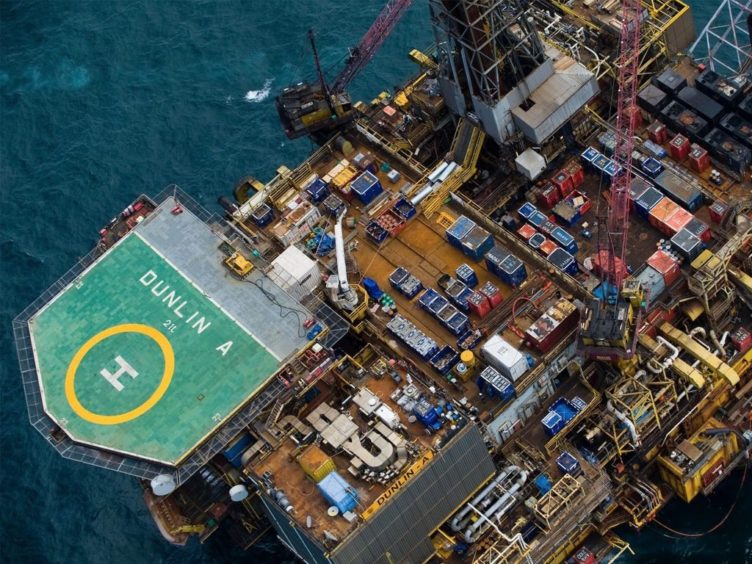
Costs of decommissioning the Greater Dunlin Area in the North Sea have increased by £25million in the last year, with the completion timeline slipping.
Shutting down Dunlin, 100miles north-east of Shetland, is now estimated to cost £860million.
The asset is operated by Fairfield Energy, but ultimate responsibility for meeting the cost lies with its partner Mitsubishi, one of Japan’s largest companies.
According to subsidiary, MCX Dunlin, Covid was the main reason for the increase in cost estimates, with operations “disrupted and restricted” for three months of 2020 due to the pandemic.
As a result, the timeline for completion has also been pushed from the previous estimate of 2024 to 2025.
The figures mean that progress in 2019, which saw Dunlin cost estimates decrease by £73m due to plugging and abandonment efficiencies, has been partially reversed.
In 2019 it was revealed that Westminster has agreed to pay up to £400m in decom relief to Mitsubishi to help shutdown the Greater Dunlin Area.
A decision to decommission Dunlin was taken in 2015, with Aberdeenshire-based Fairfield Energy unable to meet the cost.
Their 70% liability was transferred to partner Mitsubushi, triggering the Japanese firm’s request for government support.
Decommissioning Relief Deeds (DRD), introduced in 2013, guarantee support for companies if their partners cannot stump up funds for the removal of infrastructure.
The UK Government’s intention was to provide certainty on costs and encourage investment in exploration and production.
Publishing its accounts for the year to December 31, 2020, MCX Dunlin allocated £35million in “other income” for the year, representing an increase on 2019 for the estimated decom relief deeds due as a result of the increase in shutdown costs.
Fairfield Energy was one of three companies, alongside AF Gruppen and Heerema, which formed the integrated decommissioning company Fairfield Decom.
The business, set up in 2019, was aimed at reducing decom costs with a specialised approach to bring assets through late life .
However Fairfield Decom took the decision earlier this month to cease trading after “numerous” offers failed at the 11th hour.
A Fairfield spokesman said: “Since absorbing project COVID impacts in 2020, we have successfully delivered a number of workfronts ahead of schedule and anticipate presenting Mitsubishi with an improved cost forecast in Q3 that will more than reverse out the reported cost increase.
“Most recently, the 45 platform wells decommissioning programme has been successfully completed and the wells team are in the process of recovering the final seven well conductors.
“The platform is scheduled to be cold-stacked during October 2021 after completion of final preparations for topsides removal in 2022.”
Recommended for you

